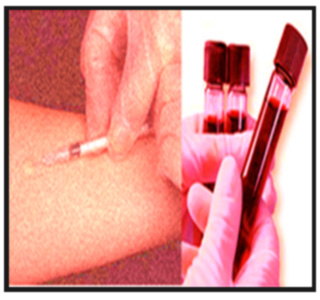
“Because studies on hormone therapy have shown that they may increase heart attacks and strokes, many women have been reluctant to use this treatment,” said Paul F. Bray, M.D., the Thomas Drake Martinez Cardeza Professor of Medicine, Director, Division of Hematology at Jefferson Medical College of Thomas Jefferson University. “However, because hormones remain the most effective remedy for managing post-menopausal symptoms, such as hot flashes and night sweats, many women wanted to take this therapy, but have struggled with the decision because they feared the potential side effects. We found that a simple and widely used blood test may be useful to advise women if they are at an increased risk of a heart attack while undergoing hormone therapy.”
The study aimed at the levels of blood lipids and greater sensitivity in C-reactive protein (hs CRP) in women who didn’t have any past records of cardiovascular diseases. The end results have pointed out that those women who had participated in the study with favorable cholesterol levels didn’t have high risks of developing heart problems while taking estrogen alone or estrogen plus progestin hormones. While women with poor cholesterol levels were at a higher risk of heart problems.
Mainly it was seen that women with a ratio of 2.5 level of cholesterol were not at an increased risk of heart disease when they used the hormone therapy. On the other hand, it was observed that women with greater ratio of “bad†to “good†cholesterol had chances of higher risk of coronary heart disease.
The findings also studied the elevated hs CRP effects on women who took estrogen which were found to have higher risk, but didn’t study the women who took estrogen plus progestin compared to a placebo.
“This report only considered the effects of hormone therapy on coronary disease outcomes,” added Bray.
Bray continued, “Instead of genetic testing or another more complicated test, we wanted to find a simple and effective way to assess the heart risk of hormone therapy. However, it should be noted that the WHI investigators have not found this test helpful in predicting the risk of stroke due to hormone therapy. It should also be noted that hormones affect a number of major organs so patients must consider the totality of health risks and benefits, including coronary heart disease, stroke, venous thrombosis, breast cancer, fractures and gall bladder disease. The findings do not change the current recommendation that hormone therapy should not be used for prevention of coronary heart disease — for prevention, women should focus on preventing and treating known risk factors such as high blood cholesterol and high blood pressure, and on avoiding smoking. Hormones should be used for the shortest time and lowest dose need to obtain symptom relief.”
The findings would be reported in June’s 1st edition of the American Journal of Cardiology by Paul F. Bray, M.D., the Thomas Drake Martinez Cardeza Professor of Medicine, Director, Division of Hematology at Jefferson Medical College of Thomas Jefferson University and his co-authors.
